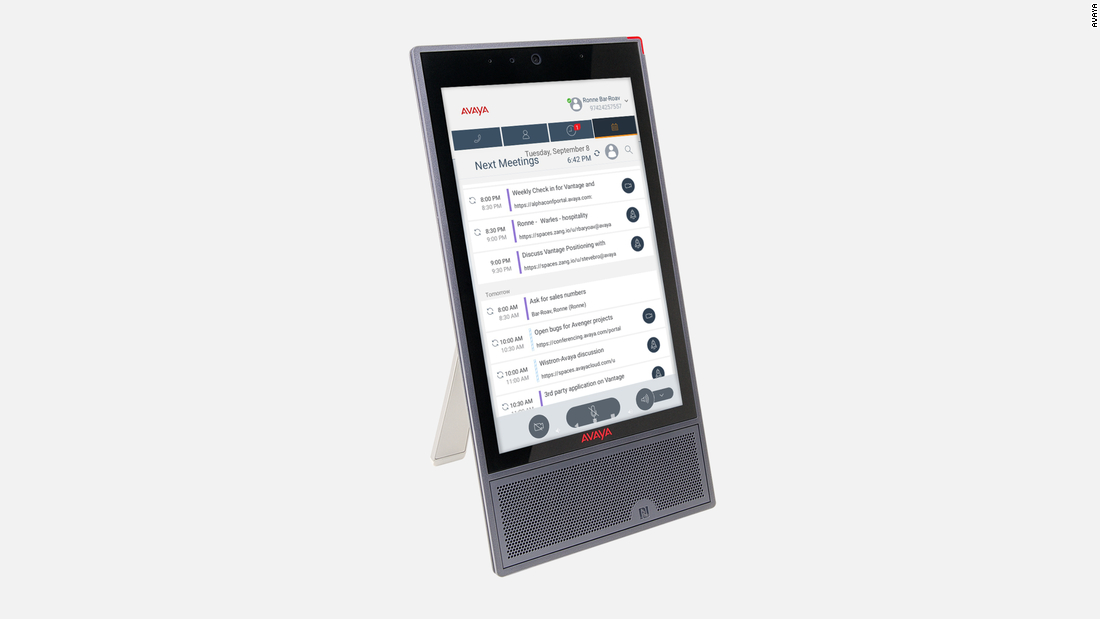The company on Wednesday reported sales for its fiscal fourth quarter that rose nearly 5%, beating forecasts. The stock, however, fell 7% on Wednesday and another 5% on Thursday as earnings fell short of Wall Street estimates.
Yet Avaya shares, even after this week’s decline, are still up nearly 30% this year. Not bad for a company that filed for receivership just three years ago.
Newly public and with a restructured business model that focuses on growing demand for cloud-based telecommunications services, Avaya still makes desk phones – and has even added video conferencing capabilities and other features to them – but the hardware is only a small part of his business.
CNN Business spoke with Avaya CEO Jim Chirico on Wednesday about how the company has restructured to focus on growing demand for cloud-based telecommunications services.
“We are now more of a software as a services company and less of a hardware company,” Chirico said. As a result of this change, software and services revenue now accounts for 88% of total sales, with the rest of the revenue coming from phones and other hardware products.
Work from home…or anywhere
And nearly two-thirds (63%) of Avaya’s sales now come from recurring revenue agreements – longer-term contracts with companies such as Apple, American Express, Citigroup and Walmart, all of which are Avaya customers. ‘Avaya.
“As bad as Covid-19 is, it has increased demand for Avaya. Moving to work from anywhere is a multi-year cycle,” Chirico said. “Growth is fueled by giving people the ability to have more solutions for remote working. Voice is now secondary to video and the cloud.”
This is one of the main reasons why Chirico prefers to talk about the post-Covid landscape as working from anywhere rather than working from home.
They are all formidable competitors – and much more important. Still, Chirico hopes businesses will eventually get back to business as usual — and that Avaya will continue to win contracts, as businesses will always need more cloud-based video capabilities to run meetings.
“This is a multi-year investment cycle,” Chirico said. “People will eventually go back to the office.”




